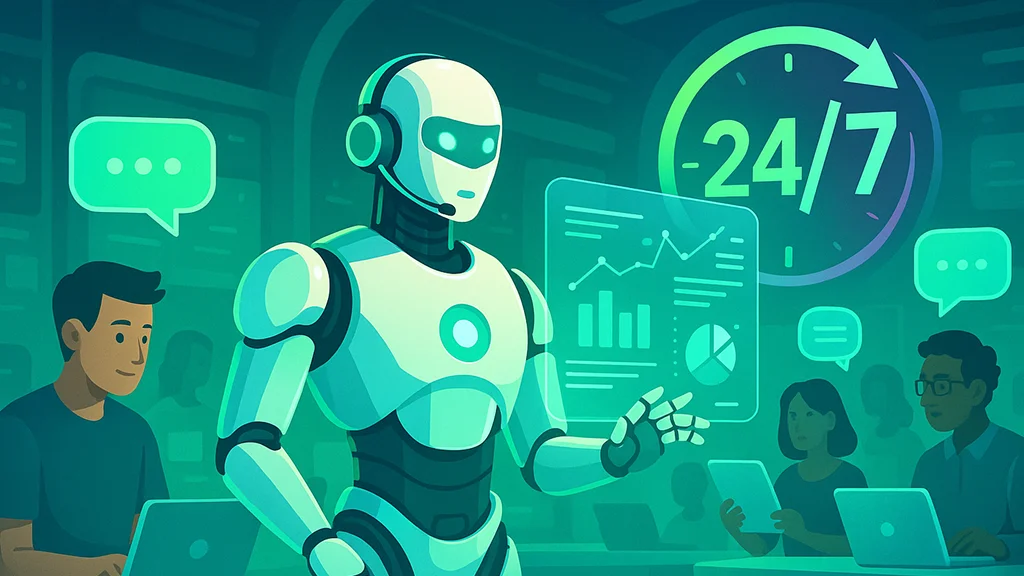When an Al Agent for Online Shopping enters the market, it proves to be a game-changer that supports online stores in operating 24/7, engaging customers more effectively in real-time, and automating essential business processes.
The e-commerce industry is evolving at a rapid pace. Today, customers expect fast, personalized, and effortless shopping experiences.
Modern AI shopping assistants are advanced versions of old traditional chatbots. They can analyze customer behavior and recommend products accordingly.
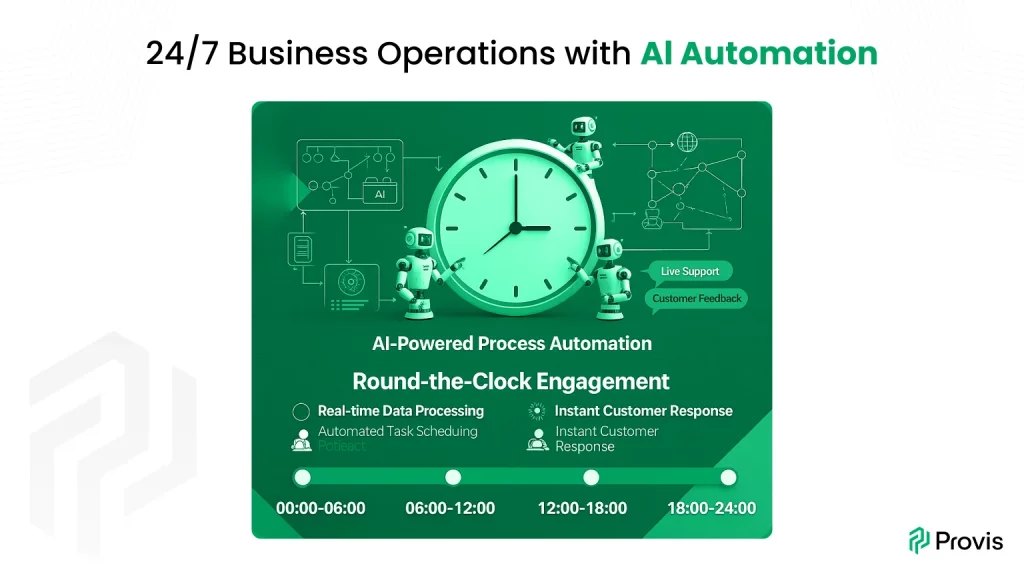
The Evolution of AI Agent in Retail / eCommerce
The use of Artificial Intelligence in retail has evolved over the past decade. Online stores rely on recommendation engines that suggest products based on past purchasing behavior.
With the rise of machine learning in e-commerce and predictive analytics, businesses have begun forecasting demand and optimizing inventory based on customer needs. Today, AI-powered marketing tools and customer analytics platforms provide deeper insights, enabling smarter and faster decision-making.
A study by McKinsey found that companies utilizing AI-driven personalization can experience a 10-15% increase in sales, along with a 10-20% improvement in customer satisfaction.
According to a Gartner report, 85% of customer interactions will be managed without human customer support by 2025, underscoring the increasing importance of AI-powered personalization in the customer experience.
From basic automation to predictive personalization, AI tools have evolved into autonomous systems capable of understanding intent and adapting to customers’ behavior, creating a new way for modern AI agents to enhance the online shopping experience.
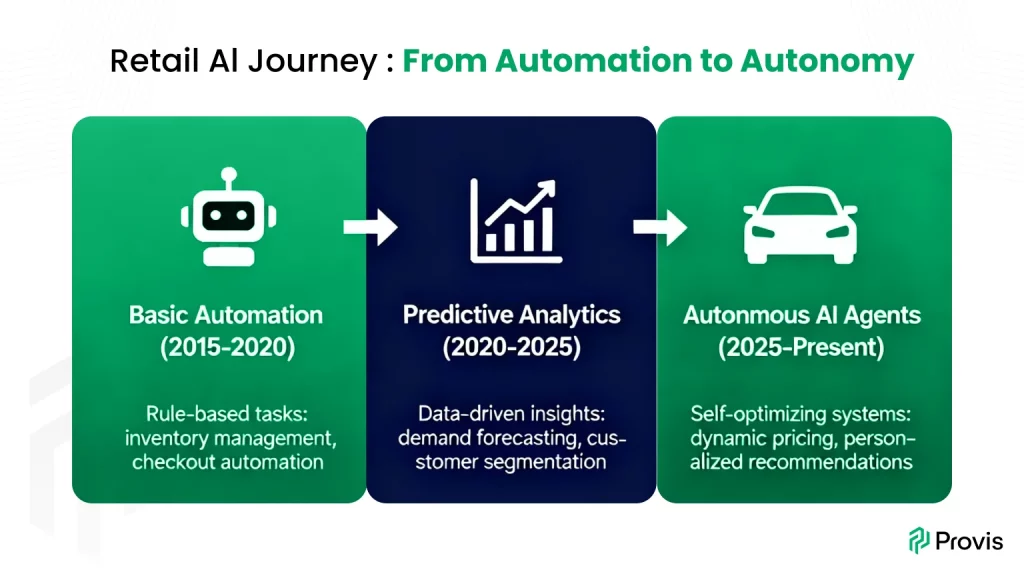
What Are AI Agents for eCommerce?
An AI Agent for eCommerce is an intelligent, autonomous system that can learn, adapt, and interact naturally with customers. Unlike traditional rule-based chatbots, AI agents use data and context to predict intent and take meaningful actions such as answering product questions, recommending items to customers, or closing a sale.
Key differences between AI agents and traditional bots include:
- Learning from data: AI agents evolve with real-time interactions.
- Understanding intent: They go beyond predefined responses.
- Autonomous operations: They interact across various digital platforms.
By using Natural Language Processing (NLP) and machine learning, these conversational AI agents deliver a personalized, human-like experience that enhances engagement and boosts conversions.
AI Agents vs. Traditional Chatbots
| Feature | Traditional Chatbots | AI Agents |
| Learning Capability | Limited to fixed rules | Continuously learns from data in real time |
| Personalization | Predefined answers | Personalized recommendations and deals |
| Multitasking | Handles one query | Manages multiple workflows |
| Autonomy | Needs human oversight | Acts independently |
| Intelligence | Predefined logic | NLP and deep learning powered |
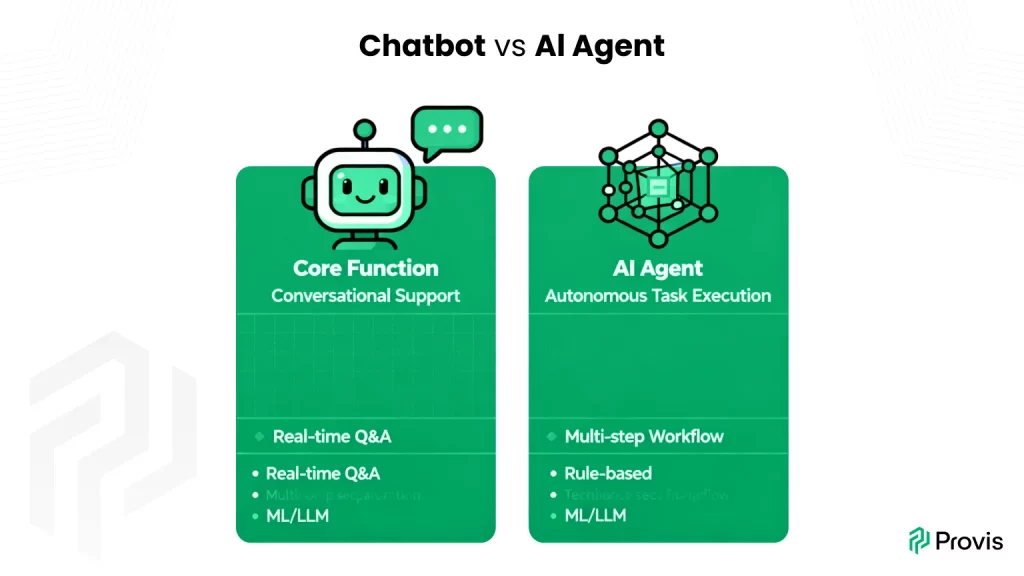
Key Types of AI Agents in Online Shopping
Different AI agents play different roles within the eCommerce ecosystem. Here are the major types and their functions:
| Agent Type | Focus / Role | Key Capabilities |
| Sales / Conversion Agent | Increase in purchases | Answer queries, upsell, and recover abandoned carts |
| Support Agent | Handle customer service | Manage returns, refunds, and complaints |
| Recommendation Agent | Product discovery | Personalize suggestions |
| Pricing Agent | Dynamic pricing | Real-time adjustments |
| Inventory Agent | Stock & demand | Forecast trends, automate reorders |
| Marketing Agent | engagement | Triggered email/SMS campaigns |
These AI shopping assistants enable brands to automate their retail processes, boost AI-driven sales, and deliver a seamless customer experience across multiple platforms.
How AI Agents Work 24/7 for Your Business
One of the benefits of an AI Agent for Online Shopping is its always-on capability. While human teams work limited hours, AI agents monitor traffic, handle queries, and close sales round the clock.
Here’s how they keep your business running non-stop:
- Real-time engagement: Connect instantly with customers to answer questions.
- Sales optimization AI: Detects potential buyers and offers personalized recommendations.
- Cross-selling automation: Suggests complementary products during checkout.
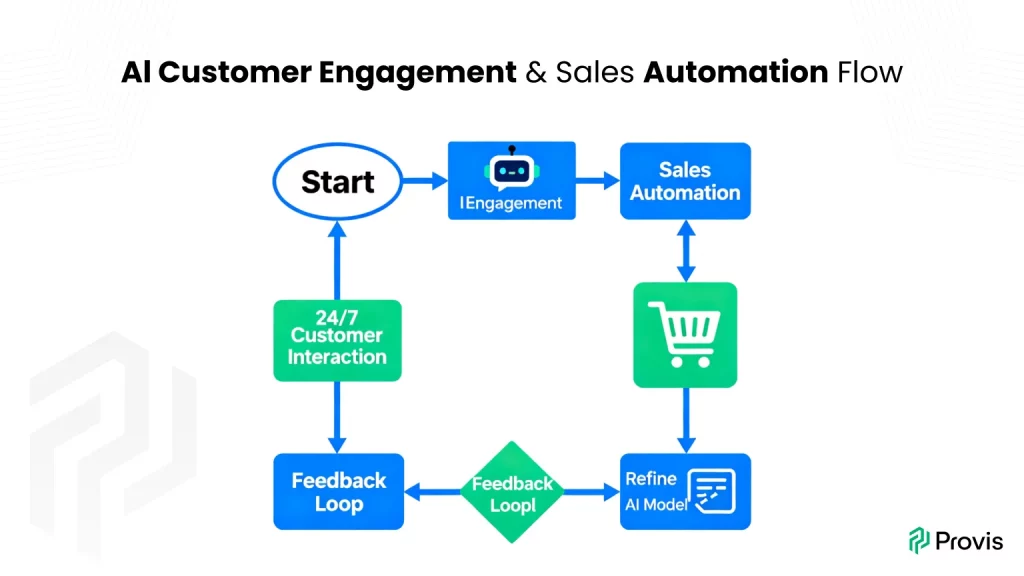
Top Use Cases of AI Agents in Online Shopping
AI agents are already changing online retail. Here are some powerful AI use cases in eCommerce:
- Personalized Recommendations: Suggest products tailored to customers’ preferences.
- Cart Recovery: Re-engage customers who abandon carts with well-timed, customized reminders.
- Upselling & Cross-selling: Encourage customers to explore related products and services that complement their purchase.
- Conversational Checkout: Simplify payments through guided, interactive experiences.
- Intelligent Search: Understand natural language to display accurate results.
- Customer Insights: Track customer behavior to optimize marketing campaigns.
These AI-driven applications demonstrate that AI agents aren’t just support tools; they are revenue engines that enhance the entire shopping journey.
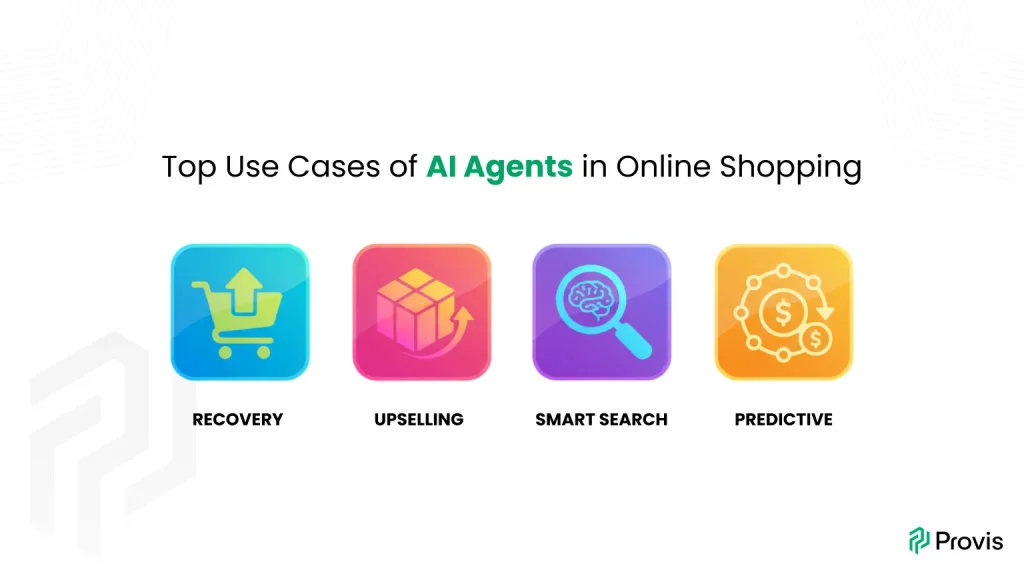
More Than Support — Your Midnight Sales Closer
An AI agent is a 24/7 virtual salesperson. While traditional bots wait for instructions, AI agents proactively engage customers to help them make purchase decisions.
They can:
- Recommend products based on the customer’s behavior.
- Send personalized offers to help undecided shoppers make informed purchasing decisions.
- Recognize buying signals and initiate real-time support.

Key Features of an Effective AI Agent Solution
When selecting an AI agent platform for your online store, look for these features:
- Natural Language Processing (NLP): Understands user queries naturally.
- Sentiment Analysis: Detects emotions to tailor responses.
- Predictive Analytics: Analyse the needs and buying intent.
- Omnichannel Integration: Operates across web, mobile, and social media.
- Personalization Engine: Recommends products unique to each customer.
- Data-driven Insights: Continuously learns and improves performance.
These capabilities make sure your AI shopping assistant delivers personalized, efficient, and scalable automation.
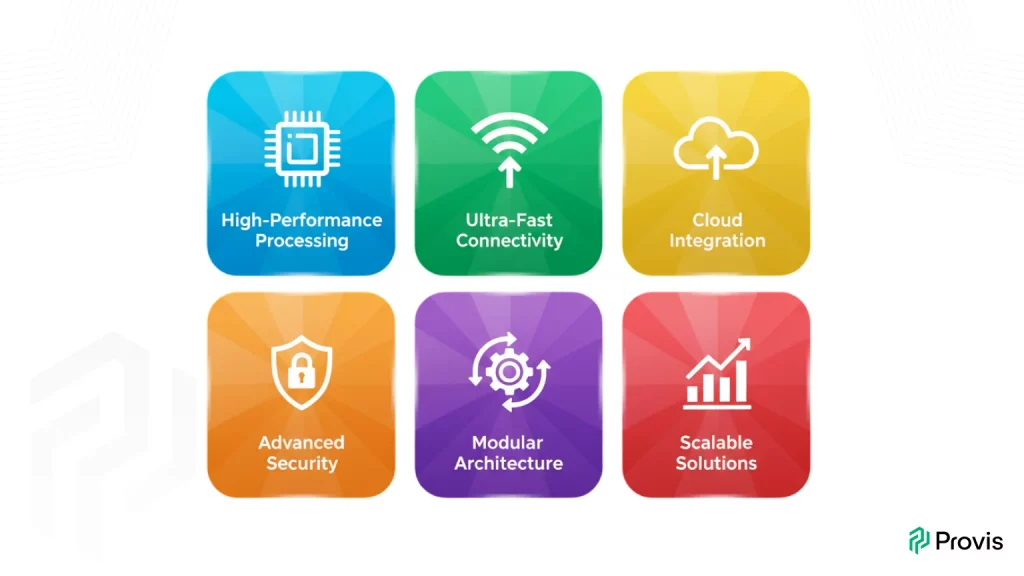
Why Your Business Needs an AI Agent Solution
In today’s fast-moving eCommerce world, adopting an AI Agent for Online Shopping isn’t just a nice upgrade; it’s becoming a must-have for staying competitive.
Businesses that support these intelligent systems gain some benefits, such as:
- Higher Conversions: Tailored engagement increases sales rates.
- Reduced Costs: Automation replaces repetitive manual tasks, resulting in lower costs.
- Scalability: Handles peak traffic without performance loss.
- Operational Efficiency: Automates inventory, pricing, and customer care.
- Improved Satisfaction: Ensures instant, consistent customer responses.
In short, AI agents deliver better ROI, business scalability, and customer loyalty, making them an essential part of future-ready eCommerce.
Implementing AI Agents in Your Online Store
Getting started with AI automation in eCommerce is easier than it seems; it just takes a structured approach. A well-planned AI integration process ensures smooth setup and long-term success for organisations.
Here’s a quick AI deployment guide to help you begin:
- Integrate with CMS & CRM: Connect your AI system with your product catalogue, CMS AI plugin, and CRM automation tools. This allows your AI agent to access product details, customer history, and live data for personalized recommendations.
- Train the AI Model: Feed the system with old customer interaction data. Proper AI data training improves its ability to predict customers’ behaviour, recommend products, and respond naturally.
- Configure Workflows: Define how the AI should handle sales, support, and recommendations to align with your brand’s voice and goals.
- Enable Omnichannel Support: Set up the agent across your website, mobile app, and social media for consistent online store automation.
- Test and Optimize: Monitor performance, analyse interactions, and fine-tune the system regularly to improve accuracy.
With a thoughtful eCommerce tech setup and ongoing optimization, your business can turn AI onboarding into a smooth transition toward smarter, faster, and fully automated customer engagement.
Common Challenges and How to Overcome Them
Like any new technology, AI agents in eCommerce come with a few issues. But with the right approach, these challenges can be easily resolved.
- Poor Data Quality: Inaccurate data can significantly reduce the model’s performance. Clean, verify, and organize your customer data before training AI agents to ensure the insights inserted are accurate.
- Privacy Concerns: Protect shopper information through robust customer data protection practices and adherence to standards such as GDPR and CCPA.
- High Training Costs: Training AI models can be expensive initially. Start with small datasets and test results, and scale your AI systems gradually.
- Model Accuracy Issues & Bias: Regular monitoring of your AI leads to the development of ethical AI in retail, ensuring transparency and accuracy in all recommendations.
- Inaccurate Recommendations: Continuously refine and retrain algorithms using real-time purchase behavior to reduce errors and enhance relevance.
By proactively addressing these AI challenges in eCommerce, businesses can develop reliable, scalable, and trustworthy systems that deliver value while upholding data privacy and maintaining customer confidence.
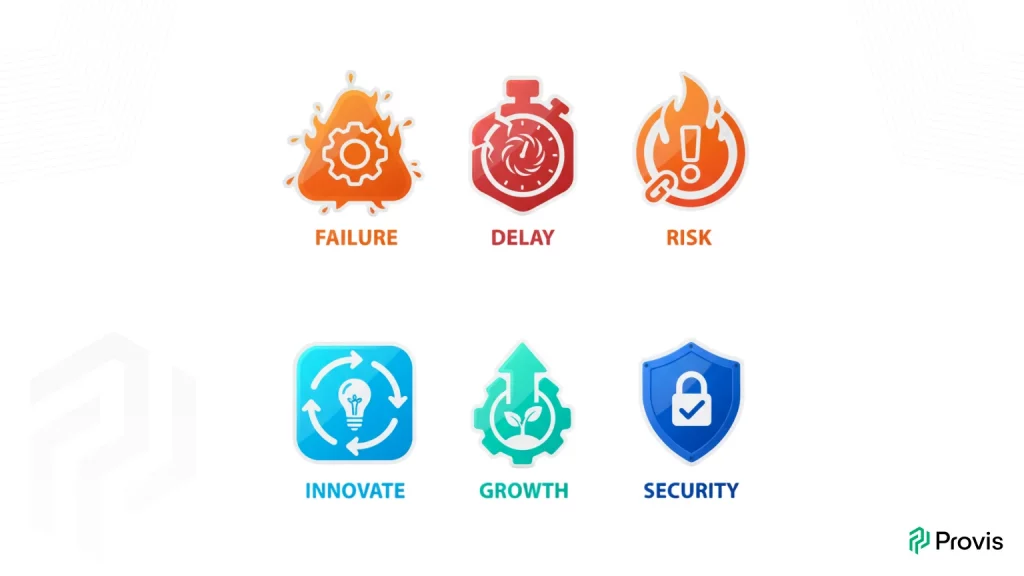
Future of AI Agents in Online Shopping
The future of eCommerce AI is evolving rapidly, with next-generation systems poised to redefine the online shopping experience.
- Multimodal AI: Future agents will process text, voice, and image inputs together for seamless interactions.
- Emotional AI: Systems will detect customers’ intent and adjust tone, timing, and offers accordingly.
- Metaverse Shopping: AI in the metaverse will power immersive 3D shopping experiences that combine physical and digital retail.
- Adaptive Learning: AI agents will continue to learn from customers’ behavior, refining recommendations with every interaction.
As AI trends for 2025 unfold, these adaptive learning systems will transform e-commerce into a more engaging and emotionally connected experience.
AI Agent Platforms and Tools to Explore
Here are some top AI agent platforms for eCommerce:
| Platform | Key Features |
| Google Dialog flow | NLP-powered conversations |
| Shopify AI | Product recommendations, automated marketing, live chat |
| Drift | Conversational marketing and lead generation |
| Intercom | AI chatbots and workflow automation |
| ChatGPT-based eCommerce Assistants | Intelligent recommendations and 24/7 support |
These tools enable businesses to easily integrate AI automation into their online stores and start delivering personalized customer engagement immediately.

Conclusion — The 24/7 AI Advantage
Adopting an AI Agent for Online Shopping gives organisations the AI advantage by selling 24/7, providing instant help, and offering personalized shopping all the time.
With faster responses, happier customers, and higher conversions, AI transforms eCommerce into an always-on business model that runs efficiently and profitably.
By adopting this AI-driven approach, brands can remain open, responsive, and prepared for the future in a marketplace that never stops evolving.
FAQs on AI Agents for Online Shopping
1. What is an AI Agent for Online Shopping?
An intelligent system that engages customers, provides recommendations, and completes sales autonomously.
2. How is it different from chatbots?
AI agents learn from interactions, understand intent, and perform actions — unlike rule-based bots.
3. Can it boost sales?
Yes. AI agents upsell, cross-sell, and recover abandoned carts to drive conversions.
4. Is it expensive to integrate?
No. Many platforms offer modular pricing, making it affordable for small businesses.
5. What are the best AI tools for online stores?
Google Dialog flow, Shopify AI, Drift, Intercom, and ChatGPT-powered assistants.
6. How do they work 24/7?
They monitor traffic, respond instantly, and automate sales continuously.
7. Is it safe to use customer data?
Yes — when data privacy and AI compliance measures are followed.
8. Can small businesses benefit?
Absolutely — AI agents reduce workload, enhance engagement, and scale operations easily.
9. What features matter most?
NLP, sentiment analysis, personalization engine, and predictive analytics.
10. Will AI replace humans?
Not entirely. AI handles routine queries, while humans manage complex cases.
Written By
Author's Picks
- Rational Agent In AI: Intelligent Agents in Artificial Intelligence
- 13/01/2025
- What Is Agentic AI ? Complete Guide
- 26/10/2025
- Artificial Intelligence in Logistics: The Future is Here!
- 13/03/2025
Categories
- AI for Startups
- AI in Web Development
- AI Integration
- AI Platforms
- AI Prompt
- AI Tools
- AI Trading Software
- Android App
- Android vs iOS Development
- Angular
- API
- API Development
- App
- app development
- App Idea
- App User Feedback
- Application
- Artificial Intelligence
- Audit Services
- Automotive Industry
- Awards and Recognition
- Business Consulting
- Business Website
- Chatbots
- CRM
- CRM for Financial Advisors
- Custom CRM
- Custom SaaS
- Custom Website
- Customer Service
- dashboard design
- Developing a Mobile App
- Digital Business
- E-commerce
- EMR Integration
- Finance
- Financial Advisors
- Financial Advisors
- GIT
- Health Insurance
- iOS App
- iOS App Development
- IoT Mobile App Development
- IoT Platforms
- IT Audit Services
- IT Consulting
- IT Strategies
- Java Development
- Laravel
- Lean Canvas
- Learning Management System
- Logistics Apps
- Mobile App Development
- MVP
- Native App
- News Aggregator Site
- OTT
- Outsourcing IT
- Payment Gateway
- predictive analysis
- Product Launch Strategy
- Progressive Web App (PWA)
- Prototype
- Recommender Systems
- Ruby
- SaaS
- SaaS Application
- SaaS Business
- SaaS Company
- SaaS Development
- SaaS Product
- SaaS Project
- Sales Funnel
- SEO
- Shopping Cart
- Software Development
- SSL and TLS
- Startup Checklist
- Technology
- Tetradic Color Scheme
- UI/UX Design Company
- Unit Testing
- User Flow
- User Testing
- Web Development
- Web Performance Optimization
- website Maintenance Services
- Website Migration Service
- Website Speed Optimization
- WooCommerce
- WordPress
